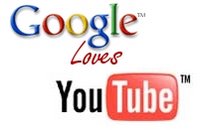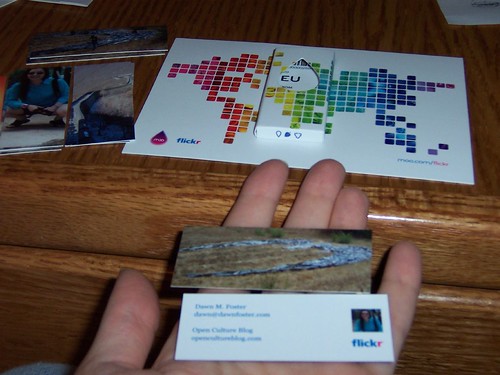
The New York Times had an interesting article, titled Planet Google Wants You, today about how Google is taking over more parts of our lives every day:
Marketing experts consider a Web site an experience — different from using a product like a soft drink — because it’s someplace you go, an arena in which you live out your life. And in this way many people develop a sense of intimacy within it, even trust.
…
Donna L. Hoffman, a founder of eLab 2.0, a research center at the University of California, Riverside, that studies online consumer behavior, said that Google has in the minds of many users “become one with the Internet,” achieving a meta-status because as the most-used search engine, “it literally augments your brain. I don’t have to remember quite a few things now because Google can remember them for me. Google is an additional memory chip.”
…
Like Apple, Google has lured the young and the early adopters by making the utilitarian — say, Gmail — seem hip. Part of the allure stems from the clean Euro-minimalist design of its applications. Part of it stems from the company’s reputation for innovation. (Quote from New York Times)
I’ll admit it Google has taken over my life, not out of any need to be hip and trendy, but because I simply like Google’s products better than the alternatives. I like Google search because it seems to find what I am really looking for more quickly than the other search engines. I am addicted to Gmail, and I use it not because it is free, but because I like it better than Outlook. Despite owning a copy of Outlook, I have stopped using it for personal mail (I still have to use it for work) because it is consumes too many system resources, and everything about it is just slow. An Outlook search for an email can take minutes instead of seconds in Gmail, and I love using tags in Gmail for those complex topics where filing them in a single folder makes no sense. Google Calendar helps my family find me when I travel. Google Analytics keeps track of my blog traffic. Google Docs provides a place to collaborate with my boyfriend to track household expenses. Google Groups gives my Portland BarCamp Meetup participants a way to keep up with the latest news about our events. I could go on, but you get the point.
Security does concern me in this environment, since Google knows more about me than my family, but it is a risk I am willing to take for the added convenience.




 participating in
participating in 

